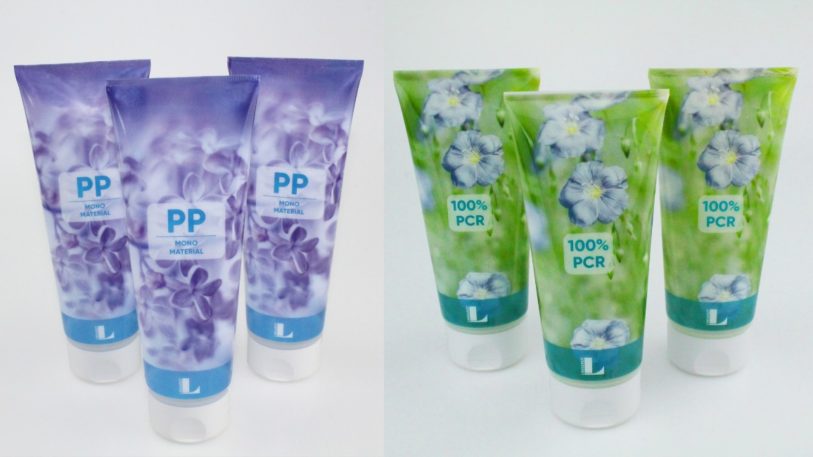
Linhardt is also currently investing around 4.5 million euros in the expansion of extrusion and printing technology at the Hambrücken location, just under 30 kilometers north of Karlsruhe . A new system is expected to go into operation in April 2021, with which the company will then increase its HD printing capacity from 55 million to 120 million units per year. HD-Print is a high-resolution offset printing process for tubes specially developed by Linhardt, which enables smooth gradients and sharp, clean print quality.
In Hambrücken, Linhardt produces around 200 million plastic tubes per year with 270 employees. "Here we can decorate tubes with different varnishes, apply membranes to protect the authenticity, finish, hot-stamp and print using screen, offset and HD printing," says plant manager Michael Ring . "We also want to increase the proportion of PCR in production and will soon be putting a 6-layer extruder into operation ."
August Wanninger adds: “We can already offer PCR plastic tubes with a proportion of 50 to 70 percent PCR material. A six-layer structure - five layers of PCR and a thin inner layer of new material for direct contact with the product - will soon make a tube with up to 100 percent recyclate possible. "
Real cycle with short transport routes
Linhardt produces plastic tubes from PCR material in two versions. In the first variant , the rHDPE comes from milk bottles of different types , which are recycled in England. The second variant was developed in cooperation with corporate partners. For this purpose, regionally collected waste from the “yellow sack” is sorted, processed into new material and processed into tubes at Linhardt in Germany. This creates a real cycle with short transport routes.
Sustainability is one of the group's declared corporate goals. Not only the use of recyclate contributes to this. Wanninger: “For example, we are already using 20 percent less material in the manufacture of tubes, but the most sustainable material is of course the one that we don't even use . Renewable raw materials, based on sugar or wood, are also an issue for us. And I am convinced that we will also have to think about reusable packaging in the tube area in the future. "







